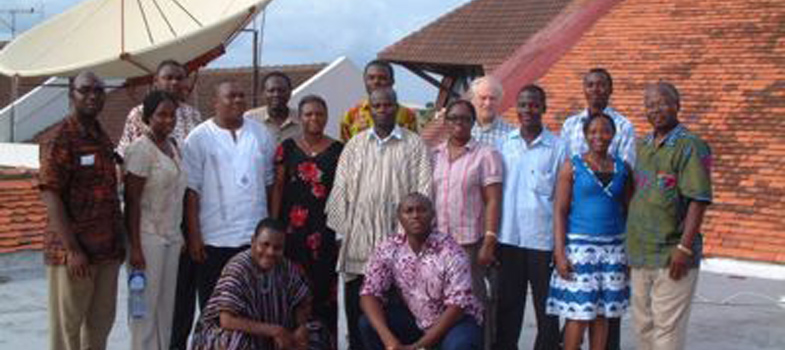Outline of the project
Outline of the project
Practical work is a fundamental part of the teaching of science. In basic schools, in particular, a practical approach to the teaching of science is crucial for learning, making science ‘real’ and applicable to life. Without practical activity, science becomes abstract and many students find concepts difficult to understand.
Teachers in schools and colleges tend to adopt a theoretical approach for various reasons, notably the lack of laboratories and equipment. The approach to the training of teachers is itself an important factor because the teacher will only have the confidence to introduce practical demonstration or activity for students when they have themselves carried out similar activities as students. This is increasingly important as distance learning becomes a significant means of training teachers. Many distance learners are in localities where they are unlikely to have access to sophisticated laboratories or equipment. Even where training is by the dual mode, the students are required to study on their own most of the time. It is crucial then that such students are able to do at least part of the practical component of their science course as they study the theoretical component on their own. Practical activity reinforces theory and brings it ‘to life’. It is not the best, therefore, that practical sessions are held several weeks or months after the theory has been taught. Several approaches have been used to address this challenge, including on-screen experiments and virtual laboratories. For now, the use of these methods in some localities is constrained by lack of infrastructure or access to the appropriate technology.
Between 2007 and 2010, the University of Cape Coast and the Centre for Open Learning in Mathematics, Science, Computing and Technology (COLMSCT) of the Open University (OU), UK, embarked on a project to address the problem of practical work in training of teachers.
Undertaken under the DelPHE scheme with funding from the British Council, the Project - Resource Packs in Experimental Science for Teachers and Trainee Teachers to enable both face-to-face and distant learning in Practical work – brought together practitioners in Ghana and teaching fellows in the UK to devise practical packs for teachers. The basis for the packs is that skills that are appropriate for an experimental subject can be taught using simple examples which need not require expensive equipment or facilities.
Each pack contains teacher’s notes, student’s instructions, learning outcomes and suggested assessment questions linked to these outcomes. There are Biology, Chemistry and Physics packs based on topics drawn from the curriculum for Colleges of Education – institutions that train teachers for the basic schools. These packs are exemplars to help users produce additional packs for their use locally.
The packs have been tested and ready to use. The editors would welcome comments from users that may help improve the quality of the packs. For this purpose, each pack also has an evaluation section.
